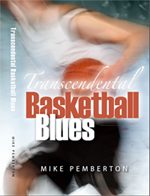A Sense of Right and Wrong
4/5/2018
Published in News-Gazette
My father’s gravestone reads: “Right is right and wrong ain’t nothin’.”
It’s a straightforward statement from a man who believed humans instinctively know when we are right or wrong. Something we feel in our gut, more than our mind.
Dad did not like rationalizations, but he did not demand perfection. He knew people, including himself, did “wrong” things. The question was did they acknowledge the wrongs and make amends or did they justify the behavior or, worse, repeat it?
Dad strove for good conduct from himself and hoped for it from others. He also believed in forgiveness and second chances.
“We go from here,” he said to me more times than I care to admit. “It’s OK, Mike. Most of us are just doin’ the best we can.”
My father always had faith in me and others. Never a doubt that I was a good kid who would be a good man. That, ultimately, I’d do the right thing as will most people. His faith in the basic decency of people all the more remarkable as he witnessed the worst as a WWII combat veteran who liberated a Nazi concentration camp.
I think about my father when I scan headlines documenting unethical, illegal, and immoral behavior. I wonder if his faith in human decency is justified.
From the genocide of ethnic groups like the Rohingya in Myanmar to North Korea subjugating its entire population to a miserable existence to the jailing and murder of dissidents in Russia, things seem unchanged from the 20th century, or the first.
Toss in the brutal treatment of girls and women in many countries, the never-ending revelations of abuse and sexual exploitation of children everywhere, the dreadful content of much of the internet, the ugly crimes committed in our communities, the situational ethics of too many of our “leaders” – “It’s OK if we do it, but not OK if you do it” mentality – and one wonders if we are in a moral death spin.
My father’s “right is right and wrong ain’t nothin’” proclamation is a conundrum to many people who believe that right and wrong is in the eye of the beholder.
Perhaps it is.
A study cited in the Medical Daily conducted by scientists from Lund University in Sweden, University College London, and the University of California, posed the question of whether “morality is an engraved virtue or a spur of the moment decision?”
Volunteers were asked to make difficult moral decisions in a laboratory. For example, “Is murder sometimes justifiable?” Unbeknownst to the volunteers, scientists used tracking technology to monitor eye movement. As the volunteers looked at two answers reflecting conflicting moral choices, the scientists monitored how long they focused on the answer the scientists wanted the individual to choose; let’s say, “Yes, murder is sometimes justifiable.”
Once the eye-tracker technology indicated the volunteer had focused on “yes” for a certain time period, the volunteers were forced to make an immediate decision.
The upshot? The participants picked the predetermined moral choice the researchers wanted 58% of the time as opposed to 50% of the time without any manipulation. The study suggests “that our morality is not as set in stone as we think and can be manipulated by a simple ‘trick of the eye’,” while the “precise timing of our decisions can be a powerful influence on the choices that we end up making.”
Certainly, timing matters. It’s easier to take the moral high ground when our basic needs are met. A well-fed person rarely steals a loaf of bread. But does that mean morality is as random as timing and eye gaze? And if it is, should we care about right and wrong?
Nietzsche argued for perspectivism, that our notion of truth is based on a particular vantage point, and therefore there are no ethical absolutes.
Or, as “Seinfeld” character George Costanza said before Jerry took a lie detector test: “Just remember, it’s not a lie if you believe it.”
Yet, Michael Tomasello, the author of Natural History of Human Morality, points toward children as examples of a basic morality.
"Young children are equally satisfied both when they help someone in need and when they see that person being helped.”
Compare an episode of “MasterChef Junior,” where the youthful participants empathize with one another, to the behavior of their adult counterparts in other cooking competitions. The kids are kinder.
“Right is right and wrong ain’t nothin’?”
I think so.
If we’re uncertain, maybe we should view the world from the perspective of a child’s eyes.


